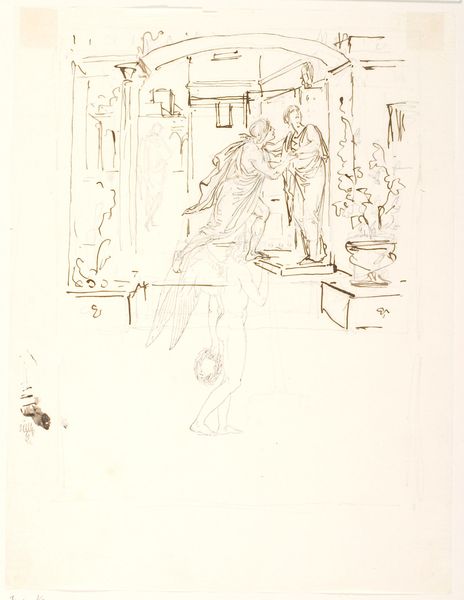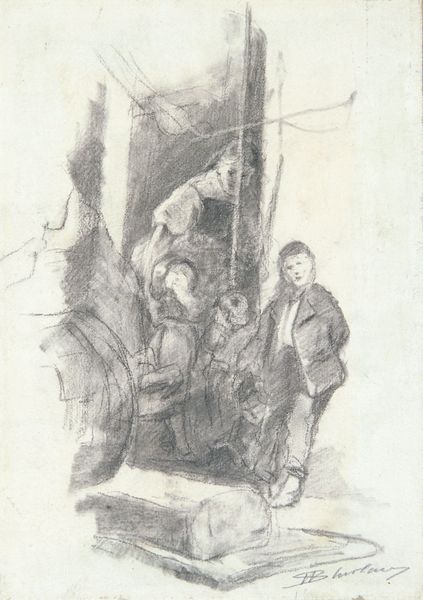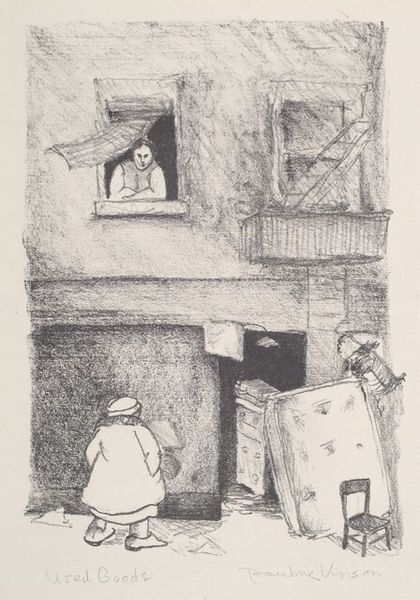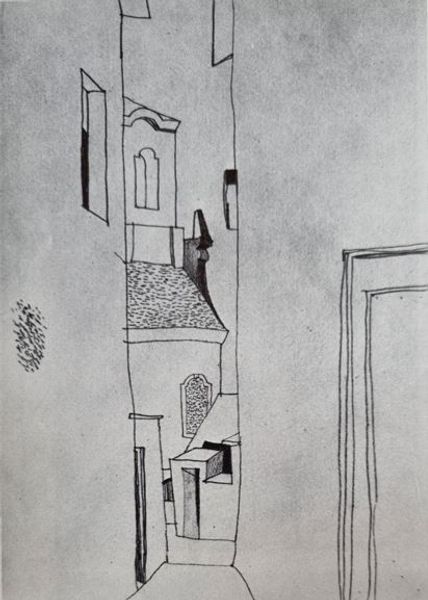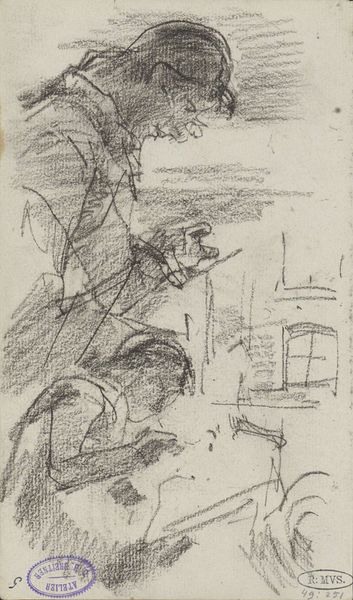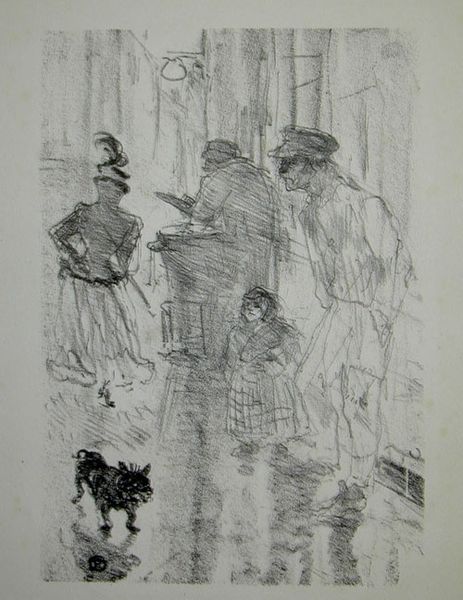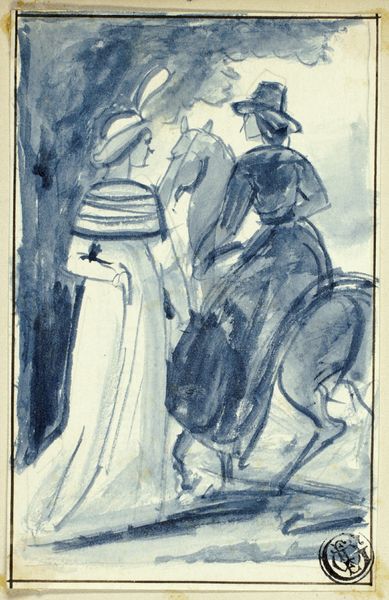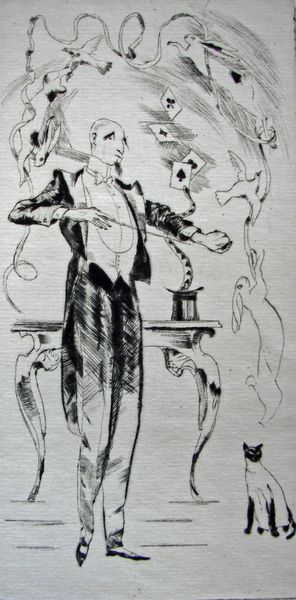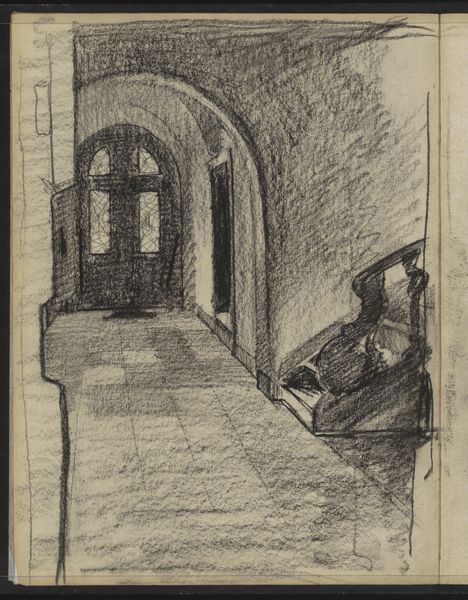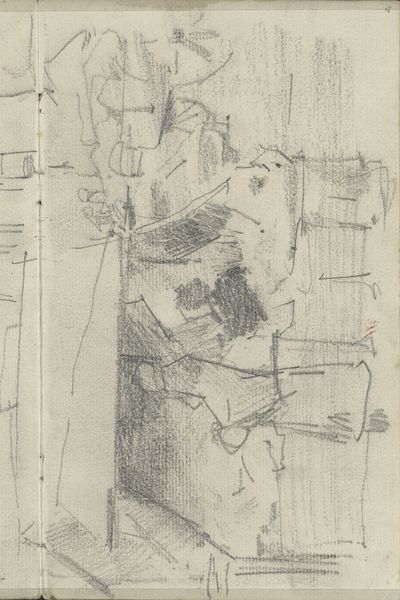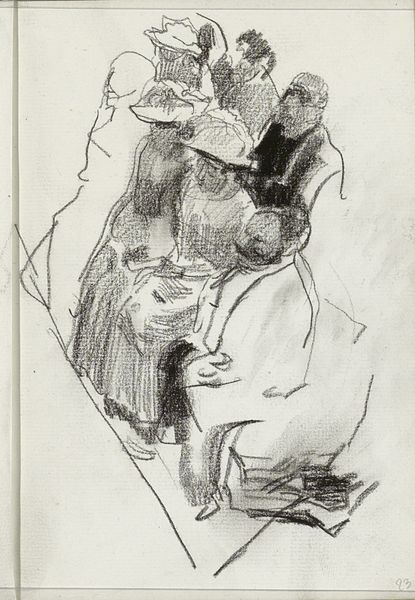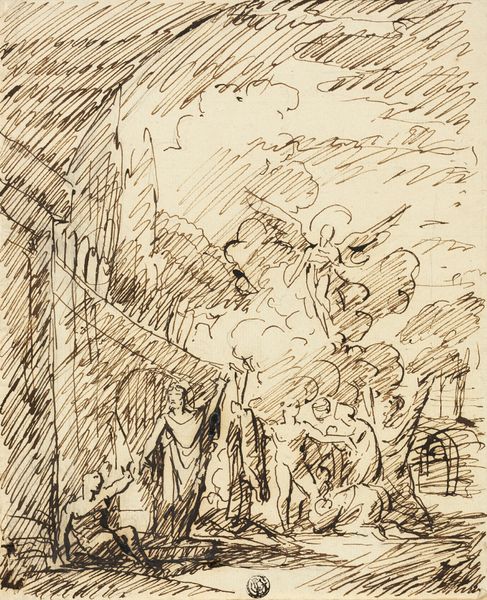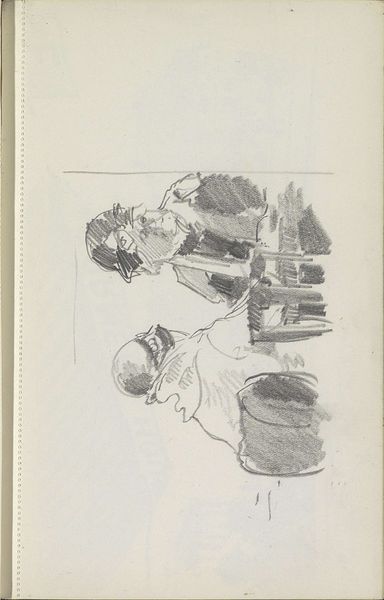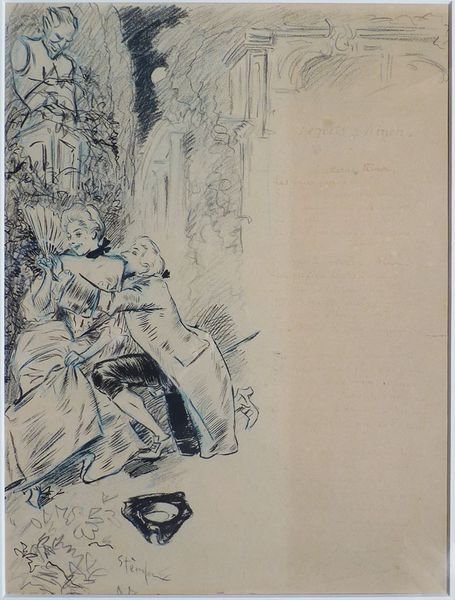
drawing, print, etching
#
portrait
#
art-deco
#
drawing
#
cubism
# print
#
etching
#
portrait drawing
Copyright: Zadkine Research Center (displayed with the permission of Zadkine Research Center)
Curator: This etching by Ossip Zadkine, titled "Masquerade," dates back to 1928. My first impression is of a very theatrical mood, somber almost, despite the figures seemingly being engaged in playful performance. What do you see? Editor: I immediately see a critique of performance and identity. Zadkine sets the stage with harlequins and masks. What's being masked and for what audience? Given Zadkine's Russian-Belarusian roots and eventual exile to Paris, I think of migration, assimilation, and the performance of belonging in an avant-garde, but often xenophobic, Parisian society. Curator: That's fascinating. Let's consider the context further. Zadkine was deeply influenced by Cubism. Notice how he fragments the forms, particularly in the figures' faces and costumes. How might that influence the narrative here? Editor: The fractured forms certainly mirror a fractured self. The use of black and white etching intensifies the starkness of the emotional landscape, the push and pull of fitting in. Zadkine shows us how identity can be performative, built on superficial roles and fragmented under social pressure. And perhaps the guitar represents this melancholic longing? Curator: It’s an interesting question. Looking at the print from an art historical point of view, the scene recalls the Commedia dell'arte, characters and stories of great significance for early modern public entertainment but often employed to challenge the status quo. Perhaps the artist is using recognizable types of cultural presentation for political purposes? Editor: Perhaps both can be true at the same time! Whether Zadkine aimed for social critique, the work provokes introspection. Are we as different as these harlequins or just as interchangeable in their masks? The lack of detail to specific identities supports the broader universality of the idea. Curator: Zadkine leaves us to ponder those enduring questions of performance and existence. Thanks for this intriguing perspective. Editor: Indeed. "Masquerade" prompts us to consider the masks we wear and the performances we enact.
Comments
No comments
Be the first to comment and join the conversation on the ultimate creative platform.
